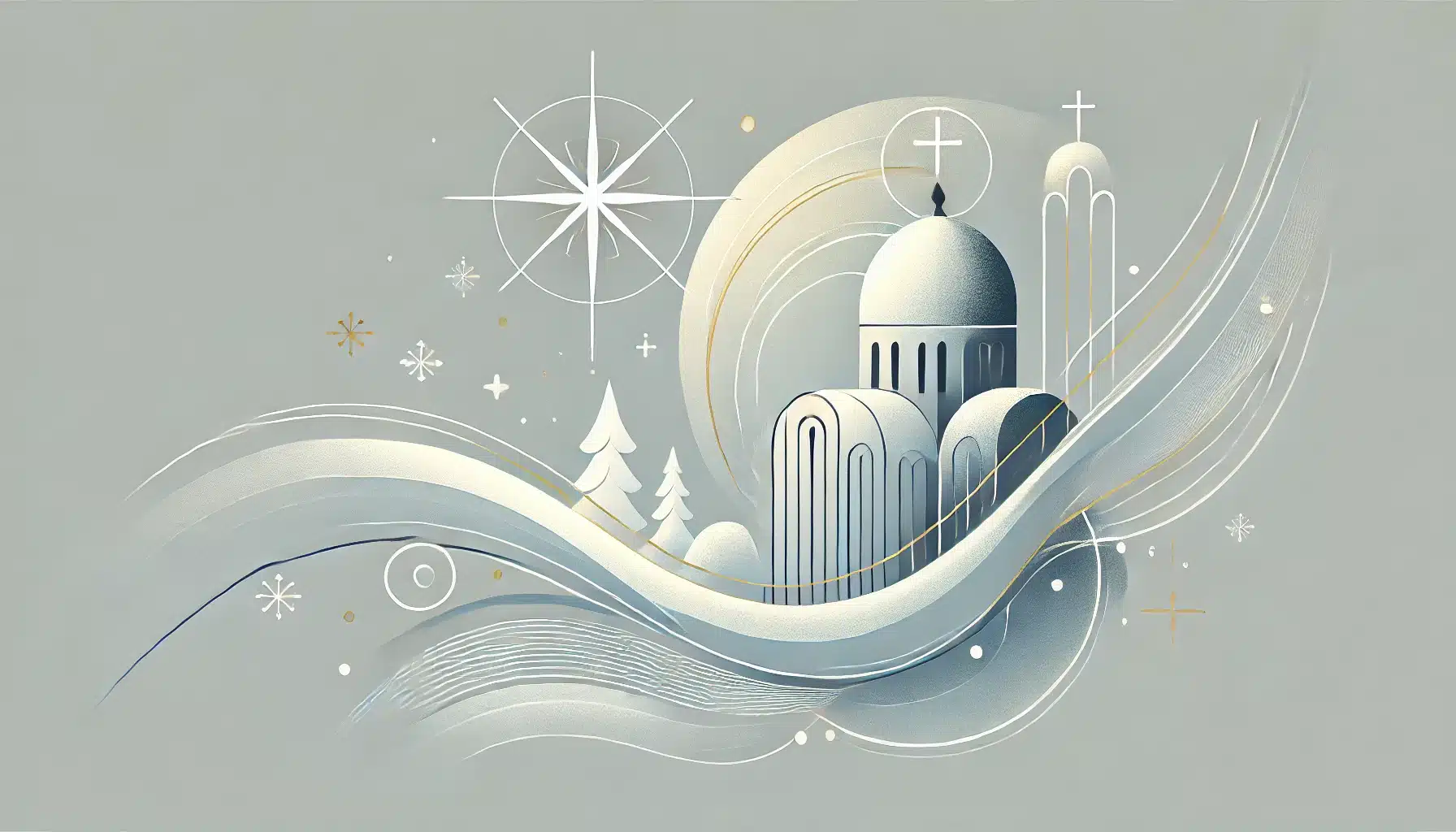What is Orthodox Christmas Day?
Orthodox Christmas Day, celebrated annually on January 7th, is observed by Eastern Orthodox Christians in countries such as Russia, Serbia, Egypt, as well as by Orthodox communities worldwide. This day marks the birth of Jesus Christ according to the Julian calendar, which is followed by many Orthodox churches. It is a deeply spiritual and festive occasion that combines religious traditions, community gatherings, and cultural customs to honor the nativity of Christ.
History and Origin
Orthodox Christmas follows the Julian calendar, which is 13 days behind the Gregorian calendar used in most of the Western world. As a result, while most Christians celebrate Christmas on December 25th, Orthodox Christians commemorate it on January 7th.
The roots of this celebration trace back to early Christianity, when the Church unified believers around the nativity story as described in the Gospels of Matthew and Luke. The adoption of the Julian calendar by Eastern Orthodox churches preserved the date of January 7th as the official celebration of Christ’s birth. This tradition is upheld by churches in countries like Russia, Ukraine, Serbia, Ethiopia, and Greece, as well as Orthodox communities worldwide.
Who Celebrates Orthodox Christmas Day?
- Eastern Orthodox Christians: Including those from countries like Russia, Serbia, and Greece, who follow the Julian calendar for religious observances.
- Coptic Christians: Orthodox Christians in Egypt and Ethiopia, who also commemorate the nativity on January 7th.
- Diaspora Communities: Orthodox Christian communities around the world maintain their cultural and religious traditions.
- Faithful Pilgrims: Many visit holy sites, such as Bethlehem, to celebrate the nativity in sacred locations.
- Families and Communities: Orthodox families gather for festive meals and church services to mark the holy occasion.
Themes and Slogans
Orthodox Christmas revolves around themes of faith, humility, and spiritual renewal. A central message is “Rejoice in the Birth of the Savior,” emphasizing the joy of Christ’s arrival. Another key theme is “A Season of Light and Love,” reflecting the spiritual illumination and unity brought by the holiday.
Colors, Symbols, and Patterns
Colors
- Gold: Representing divinity and the glory of Christ.
- White: Signifying purity, peace, and the holiness of the occasion.
- Red: Symbolizing the sacrifice and love of Jesus Christ.
Symbols
- Nativity Scenes: Depicting the birth of Christ, often displayed in homes and churches.
- Candles: Representing the light of Christ illuminating the world.
- Stars: Symbolizing the Star of Bethlehem that guided the Magi.
Patterns
- Ornate Crosses: Reflecting the importance of faith and salvation.
- Geometric Icons: Seen in Orthodox religious art and decorations.
- Frescoes and Icons: Traditional Orthodox depictions of biblical stories and saints.
Most Used Hashtags
- #OrthodoxChristmas
- #JulianCalendar
- #NativityCelebration
- #FaithAndFamily
- #ChristmasTraditions
How to Celebrate Orthodox Christmas Day
Orthodox Christmas Day is a deeply spiritual and festive occasion celebrated in several meaningful ways:
- Attend a Church Service: Worshippers gather for liturgies, including midnight services and prayers, often featuring choral hymns and scripture readings.
- Share a Festive Meal: Families and friends come together to enjoy traditional dishes like kutia (a sweet grain pudding) in Eastern Europe or injera and wat in Ethiopia.
- Observe Fasting and Reflection: Many Orthodox Christians fast leading up to Christmas, breaking the fast on Christmas Day with a celebratory feast.
- Engage in Charity: The holiday season emphasizes giving back to those in need, with many communities organizing donations and charitable events.
- Celebrate Cultural Traditions: Customs like caroling, lighting candles, and exchanging small gifts add a festive touch to the spiritual celebration.
Why is Orthodox Christmas Day Important?
Orthodox Christmas Day holds deep religious and cultural significance for millions of Christians worldwide. It commemorates the divine mystery of the incarnation, celebrating the birth of Jesus Christ as a moment of hope and salvation for humanity.
Beyond its spiritual importance, the day serves as a cultural anchor, preserving traditions passed down through generations. It fosters unity within Orthodox communities, both locally and globally, and reminds the faithful of the values of humility, gratitude, and love.
Features
January 7: Orthodox Christmas Day
Why do you keep falling for the same type?
Read the article Lovemaps: the hidden blueprint of our love.
Did you not find what you were looking for? Let me help you find more.

